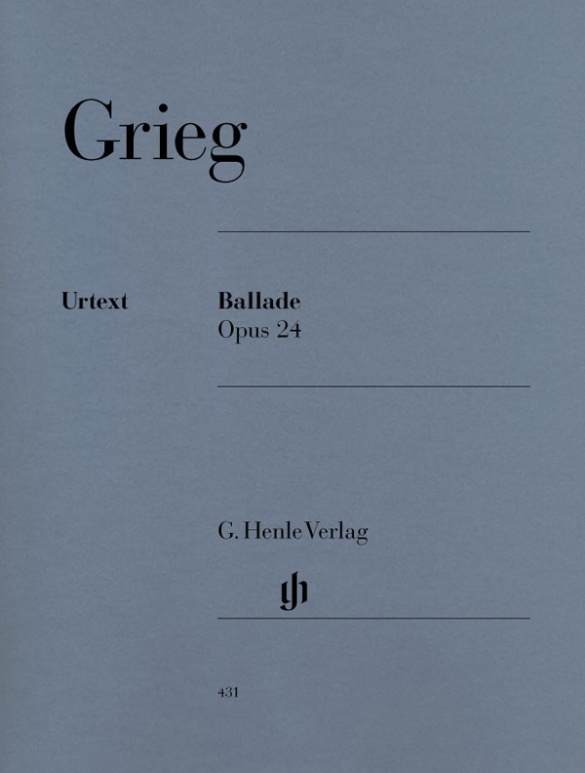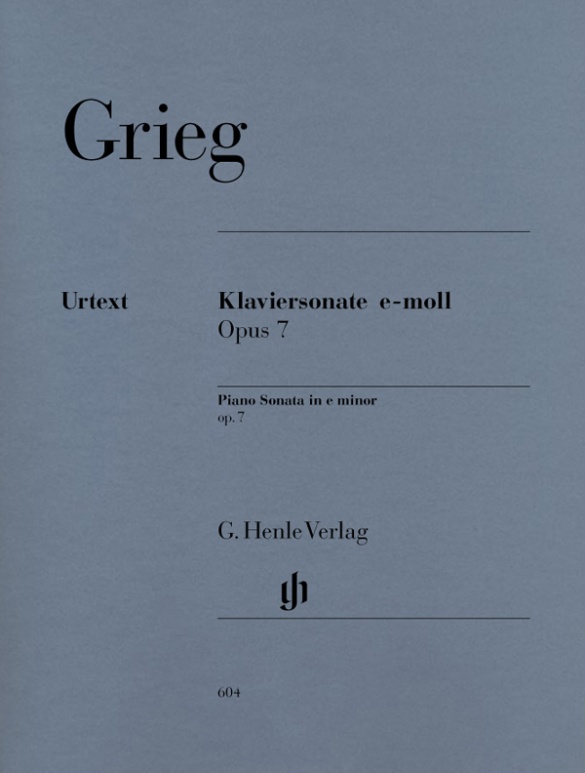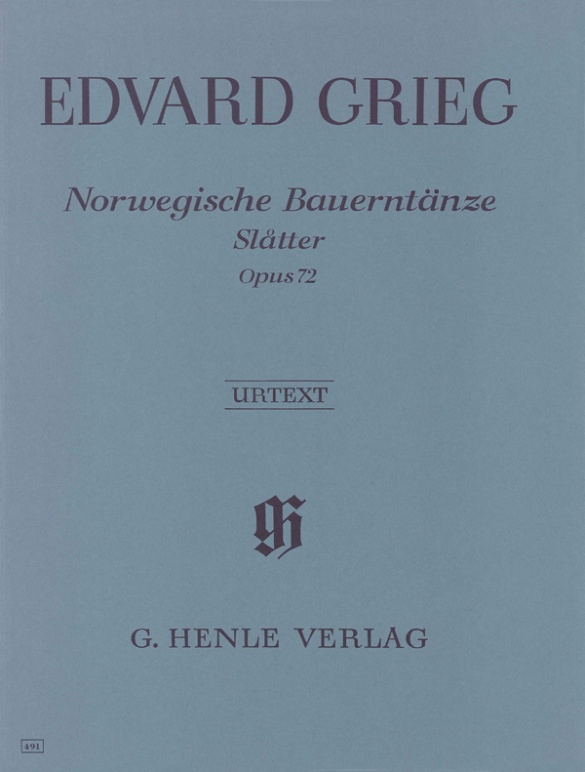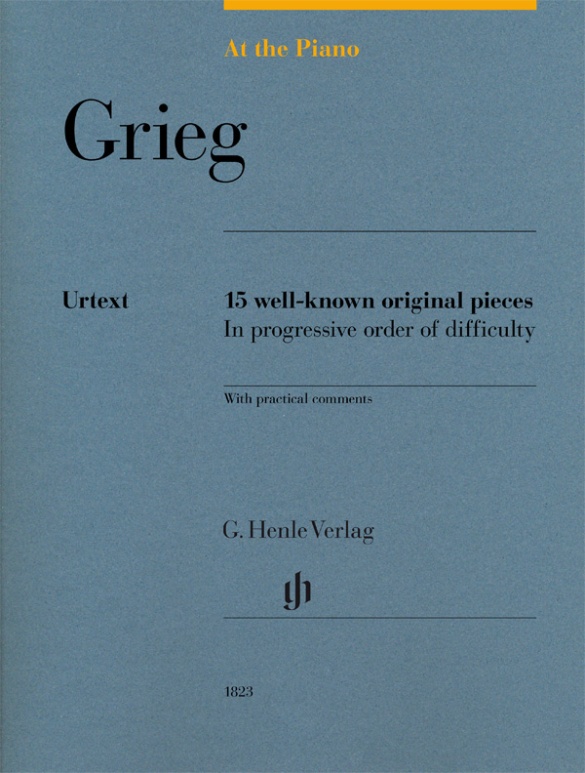

Edvard Grieg
At the Piano - 15 well-known original pieces
Edvard Grieg was a master of the Romantic miniature for piano, and with his ten volumes of “lyric pieces” he more or less created a new genre all on his own. These works offer an abundance of wonderful pieces that are ideal for a guided return to the piano. It proved difficult to choose a selection of them for our volume. But we also offer well-known pieces from the orchestral suites From Holberg’s Time and Peer Gynt, which Grieg himself arranged for the piano. Naturally they are presented superbly in true Urtext.
CONTENU/DÉTAILS
CONCERNANT LE COMPOSITEUR
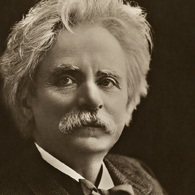
Edvard Grieg
Compositeur norvégien le plus important du XIXe s. et promoteur de la musique populaire norvégienne. Principalement connu par ses pièces de caractère lyriques.
| 1843 | Né le 15 juin à Bergen, fils d’un marchant et consul britannique; cours de piano de bonne heure auprès de sa mère qui était pianiste. |
| 1858–62 | Études au conservatoire de Leipzig. |
| 1862 | Concerts en Norvège. |
| 1863 | Copenhague, soutenu par Niels W. Gade. |
| à partir de 1864 | S’intéresse à la musique populaire norvégienne qui se retrouve dans ses compositions. |
| 1866 | Percée avec un concert comportant de la musique norvégienne. Chef d’orchestre de la Société Philharmonique. |
| 1867 | Premier des 10 recueils de pièces lyriques pour piano op. 12 avec des compositions pour piano relativement simples. |
| 1868/69 | Composition du Concerto pour piano en La mineur op. 16 qui se réfère au concerto pour piano de Schumann. |
| 1869 | «25 mélodies populaires et danses norvégiennes» op. 17 pour piano. |
| 1873 | Commence à travailler à l’opéra «Olav Trygvason» op. 50 d’après Bjørnson, demeuré inachevé. |
| 1874 | Bénéficiaire d’une bourse d’État pour la composition. |
| 1874/75 | Composition de la musique de scène op. 23 pour «Peer Gynt» d’Ibsen, d’où seront issues les Suites pour orchestre «Peer Gynt». |
| 1876 | Assiste à la création à Bayreuth de l’«Anneau des Niebelungen» de Wagner. |
| 1880–82 | Chef d’orchestre de la Société de musique «Harmonies» à Bergen. Après cela il n’accepta plus d’autres postes. |
| 1883 | Se rend à Bayreuth où il entend «Parsifal» de Wagner. |
| 1884 | Il compose «Du Temps de Holberg» op. 40, son œuvre la plus populaire. |
| à partir de 1885 | Il emménage dans sa villa «Troldhaugen» (près Bergen). Composition et révision d’œuvres plus anciennes au cours du printemps et de l’été, tournées de concerts à l’automne et en hiver. |
| 1891 | Composition de la «Suite lyrique» op. 54, orchestrée en 1905. |
| 1907 | Il meurt le 4 septembre à Bergen. |
About the Authors
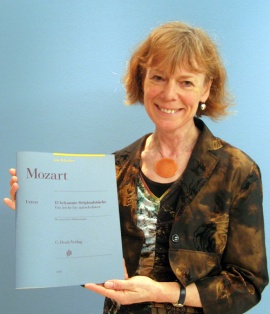
Sylvia Hewig-Tröscher (Editeur, Doigtés)
Sylvia Hewig-Tröscher studied piano at the Hochschule für Musik in Munich under Erik Then-Bergh and Hermann Reutter, as well as under Louis Hiltbrand at the Conservatoire de Musique in Geneva. 1977 she finished the „ Classe de Virtuosité“ in Geneva with the Premier Prix avec distinction and received the Henry Broliet prize as well as being awarded the GEDOK prize. Also organ studies under Lionel Rogg finishing with the „Diplome d’Orgue“. Masterclasses with George Halmos, Klaus Schilde, Karl Seemann and Wilhelm Kempff, followed, as well as with the cembalo player Li StadelmannIn. 1977 the piano trio Orfeo was established.
Since then, as a solo pianist and chamber musician, her concert activities have led her to Germany, Switzerland, France, Italy, Austria, America, Egypt, India, Korea, and Japan. The list of recordings includes Bayerischer Rundfunk and Südwestfunk Freiburg, Baden-Baden, record and CD recordings of (among others) seldom played works of the classical and romantic periods with Musica Bavarica. Further CD recordings including modern music and first performances with Calig, Symicon, Bayer Records, Arts Magnamedia, and Sony, also co-production of the Bayreischer Rundfunk and Deutscher Musikrat.
Masterclasses in Villa Marteau, Marktoberdorf, Hammelburg, Brixen, Castelnuovo di Garfagnana and New York. Today Sylvia Hewig-Tröscher works as a professor of piano and vice president of the Hochschule für Musik and Theater Munich.
Informations sur la sécurité du produit

G. Henle Verlag
Vous trouverez ici des informations sur le fabricant du produit.G. Henle Verlag e.K.
Forstenrieder Allee 122
81476 München
Allemagne
info@henle.de
www.henle.com
At The Piano is an excellent series for students and teachers. Those who fancy learning a major composer’s ‘piano favourites’ will really enjoy working their way through each book. G. Henle have combined a scrupulous ‘pure’ score with plenty of valuable information, offering a fascinating glimpse into the history and style of each composer.
Melanie Spanswick, 2018recommandations
autogenerated_cross_selling
Autres éditions de ce titre
Autres éditions de ce titre


